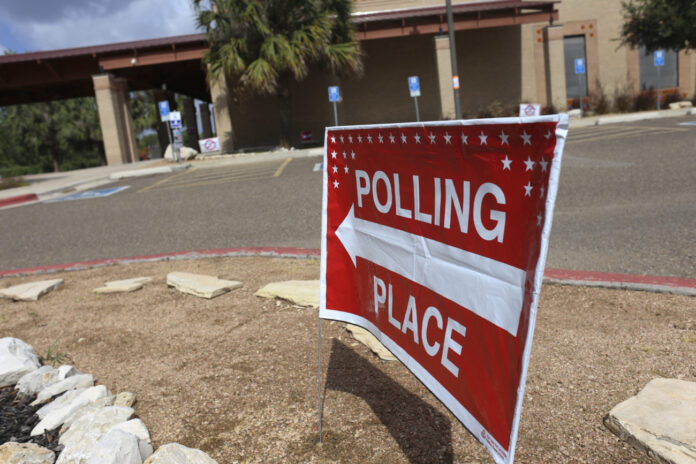President Trump on Thursday raised the possibility of postponing the November election — the election that will decide if he gets another four-year term.
We hope the COVID-19 pandemic has abated by then. But even if it hasn’t, delaying the election shouldn’t be necessary.
After all, this country has endured other pandemics. It’s survived the Great Depression, the Dust Bowl, two world wars and even a Civil War. Nothing has ever interfered with a national election, and there is no need to consider it now.
The president’s suggestion came, as usual, via Twitter: “With Universal Mail-In Voting (not Absentee Voting, which is good), 2020 will be the most INACCURATE & FRAUDULENT ELECTION in history. It will be a great embarrassment to the USA. Delay the Election until people can properly, securely and safely vote???) (sic).
In subsequent days the president has continued voicing allegations that voting by mail is a fraudulent system.
Trump focused on mail-in voting because growing numbers of people are calling for the use of mail to enable voters to cast their ballots even if they fear exposure to the coronavirus by going to a potentially crowded polling site.
However, people already vote by mail in every state, to varying degrees.
One Rio Grande Valley election administrator, Cameron County’s Remi Garza, was among the first to propose the expansion. Once the pandemic took hold and forced a delay in primary runoffs after Super Tuesday, Garza and others announced they would accept fear of contracting COVID-19 as a valid health condition, which is required in the state to qualify for mail-in voting privileges.
Lawsuits challenged those plans, and a federal appeals court ruled that the elections process was too far along to be changing the rules.
But the issue should already have been answered in practice. Many Texans already vote by mail, although they only qualify if they are over age 65, have a disability or illness, plan to be out of their voting district on election day or are incarcerated but still have voting privileges.
This is one of 17 states that carry restrictions, however. Five states have almost all ballots cast by mail, and 25 states and the District of Columbia allow any voter to vote by mail without having to give a reason or meet a restriction.
Millions of people do so; 24% of all 2016 presidential ballots were mailed in, according to the U.S. Election Assistance Commission. Few allegations of voter fraud have been made, and even fewer have been proven.
Gov. Greg Abbott, to his credit, responded by extending the early voting period — a rule change that apparently was acceptable. We encourage voters to utilize the extended period and go to the polls early; that way they can leave if crowding is too heavy for comfort, as they will have plenty of time to return at a safer time.
We trust the legislature will take up the issue when it convenes in January, and ease the restrictions or create allowances for extraordinary circumstances.
In the meantime, we encourage voters not to be deterred by their fears; just take the necessary precautions and use the extra cushion of time the governor has offered for early voting.



